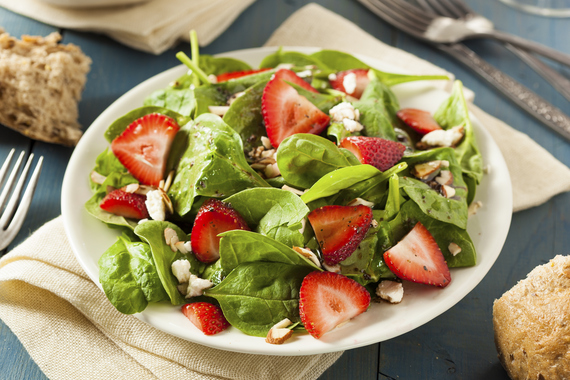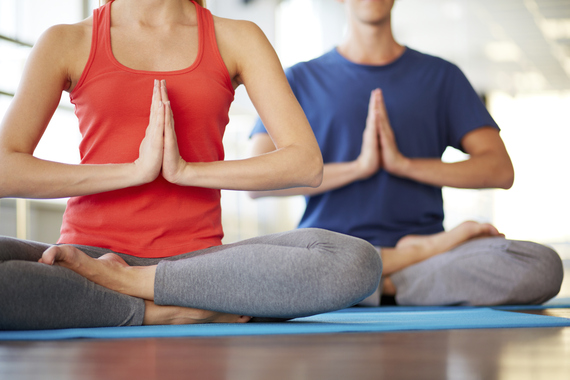
Simple daily habits can help ease pain.
Berkeley Wellness / By Peter Jaret
Chronic pain can be tough to live with, but these 10 daily habits may help you ease your discomfort and enjoy your life.
1. Stay active
Exercising may be the last thing you want to do when your body hurts. But physical activity has been shown to ease chronic pain. Staying active also helps you maintain your ability to do everyday tasks, which is essential to good health and independence. The goal of many chronic pain programs, in fact, is to help people maintain function despite pain. Research suggests that low to moderate exercise--walking or pedaling a stationary bike--can reduce pain and improve your fitness level. Talk to your doctor about activities appropriate for you. Try to do at least half an hour of physical activity most days of the week.
2. Eat well
You've no doubt read that certain foods, such as tomatoes, broccoli, fish, and green tea, may have an antiflammatory effect. But rather than focus on single foods, most experts agree, it's smart to focus on an overall healthy diet. The best advice: help yourself to plenty of fruits, vegetables, nuts, whole grains, and legumes. Avoid processed foods, especially those loaded with salt or sugar. Keep an eye on portion sizes to help avoid weight gain.
3. Try something new
If conventional activities don't inspire you, try something new--yoga, for instance, or water aerobics. Tai chi, a Chinese practice that combines meditation and movement, is also popular. Qigong, another Chinese discipline, focuses on posture, concentration, balance, and confidence. Check out your recreation department or local gyms to see what they offer. Be sure to talk to your doctor about what's right for you.
4. Limit alcohol
Advice on alcohol is tricky, because it has both benefits and risks. A 2015 study found that people with chronic pain who drank moderately were less likely to be disabled by pain than nondrinkers. But even the authors of the study cautioned that their findings weren't reason enough to recommend drinking. And too much alcohol is dangerous for many reasons, including the risk of accidents and falls, as well as liver damage.
Drinking to ease pain is especially dangerous, because it can lead to addiction and actually increase the perception of pain. What's more, many pain medications can interact with alcohol, raising the risk of trouble. If you currently enjoy alcohol now and then, talk to your doctor about the right amount for you.
5. Quit smoking
If you smoke and suffer from chronic pain, you have extra reasons to quit. Tobacco reduces the amount of oxygen-rich blood that flows to bones and tissues, which in turn can increase low back pain and damage from osteoporosis. Tobacco also slows healing, which can make health problems even more painful. Ask your doctor about the best ways to quit for good.
6. Meditate
Meditation is a great way to quiet your mind and buffer the inevitable stresses that come with living with chronic pain. One popular form of meditation, called mindfulness, offers a way to stay focused on the present moment, without thinking about the past or the future. The intention isn't to distract you from pain. Instead, mindfulness offers a way to avoid being overwhelmed by chronic pain by putting it in the larger context of everything you're feeling and experiencing, both in your body and your environment.
7. Get a massage
What's not to like about getting a massage? And there's evidence that for many kinds of chronic pain--from lower back pain to fibromyalgia--massage can offer real, albeit temporary, relief.
8. Distract yourself
When you suffer from chronic pain, it's easy to withdraw into yourself, which can make your discomfort even worse. Instead, find ways to distract yourself by doing something you enjoy, especially something that engages your mind. Call a friend, go to the movies, do a crossword puzzle, pursue a hobby that you enjoy. Some people find it helpful to make a list of favorite things and turn to it when they're going through a rough patch.
9. Replace negative thoughts
Living with chronic pain can get you down. Feeling overwhelmed, in turn, can increase your perception of pain. To stay positive, first become aware of negative thoughts. Examples include "I hurt so much I can't do anything" or "Nothing I do seems to help." Replace these negative thoughts with constructive alternatives. Examples might include: "Being active is the best thing I can do not to give into pain." "Even when I hurt, there are things I can do that I enjoy."
10. Join a support group
Talking to other people with chronic pain will make you feel less isolated and more in control. Many communities have chronic pain support groups. Ask your doctor or check the internet; the American Chronic Pain Association, for example, offers a directory of local support groups on its website.


